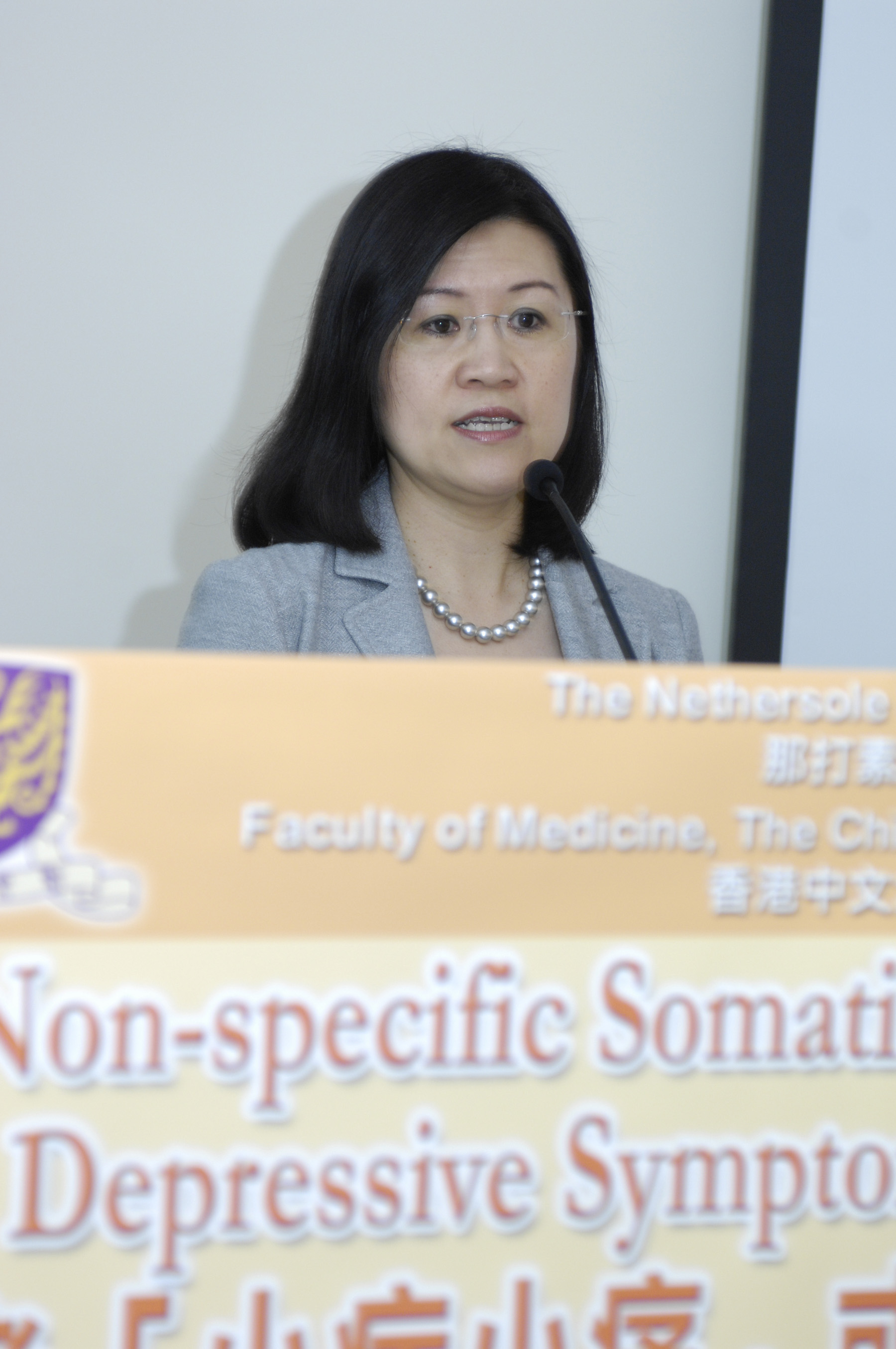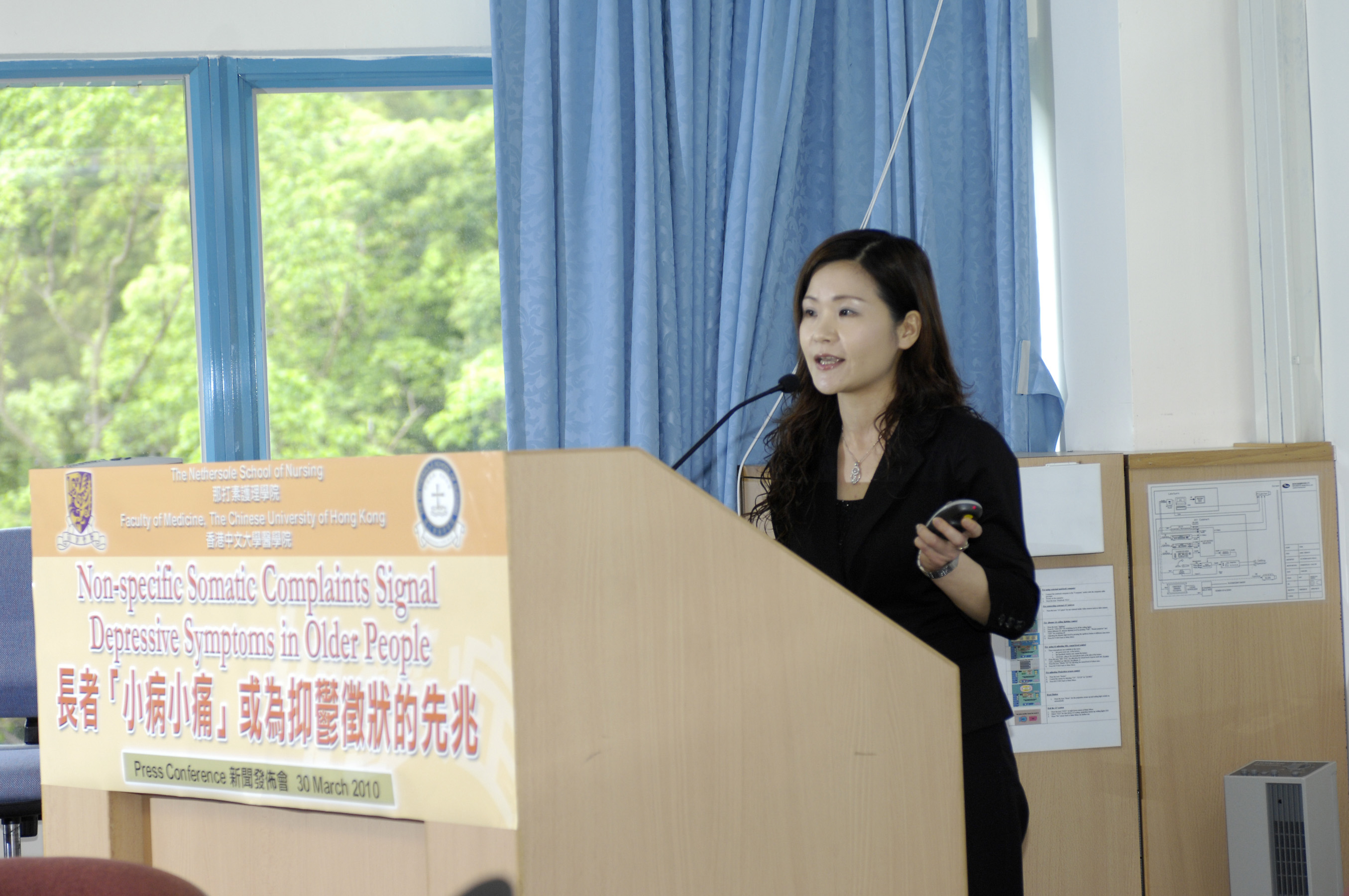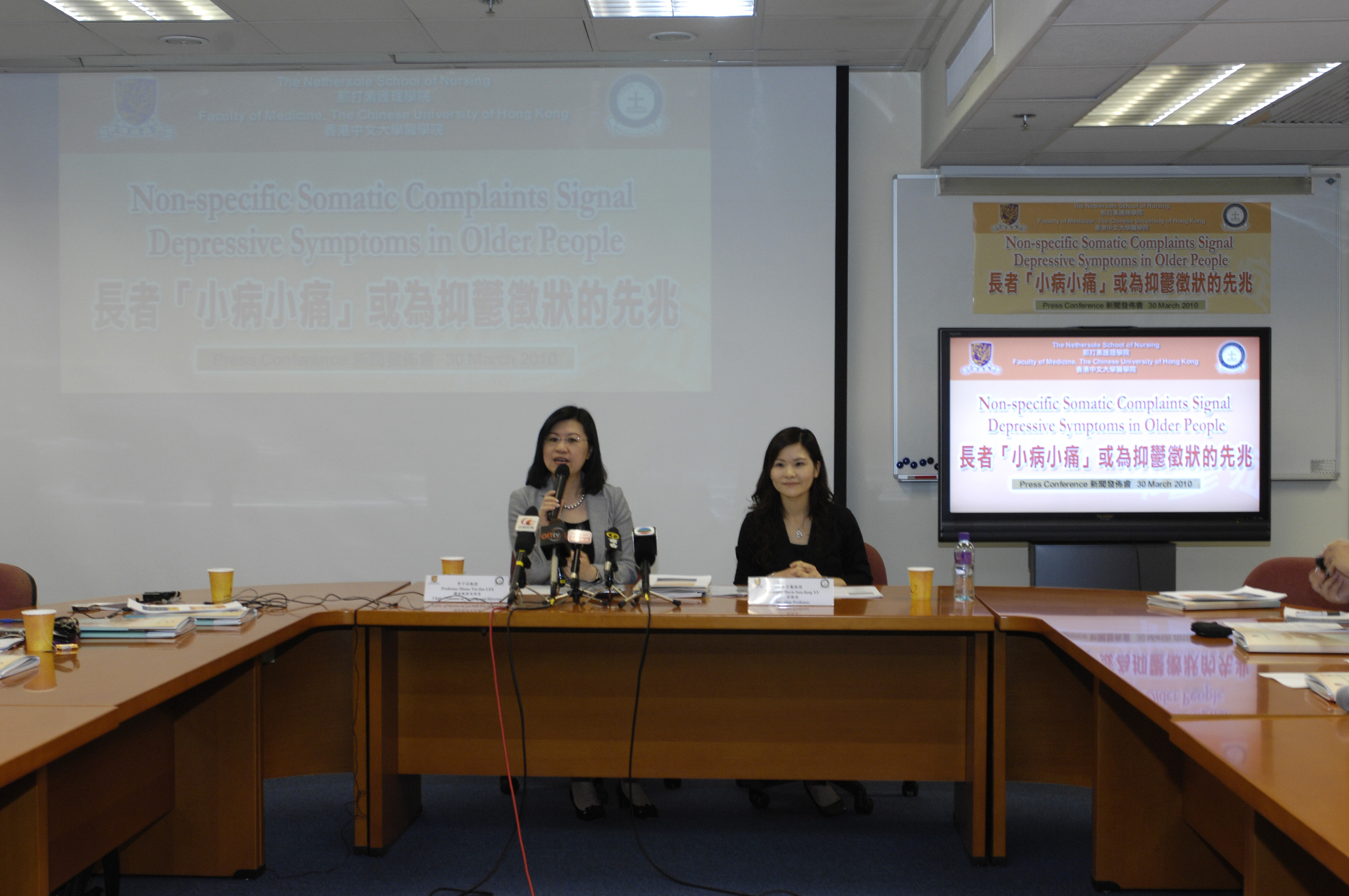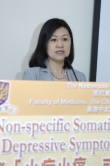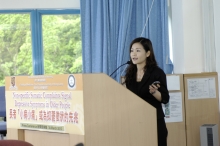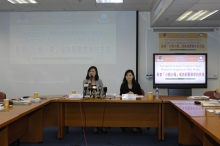CUHK
News Centre
Non-specific Somatic Complaints Signal Depressive Symptoms in Older People, Reveals CUHK Survey
Do you find your elderly friends often complain about their non-specific somatic problems, such as loss of appetite, insomnia, fatigue, or bodily pain? These complaints may easily be mistaken as insignificant or even unavoidable for older people, and so no treatment is needed. In fact, however, these neglected non-specific somatic complaints may signal depressive symptoms in older people.
The Nethersole School of Nursing at The Chinese University of Hong Kong (CUHK) conducted a cross-district survey in 2007 and 2008 to examine the quality of life and health status of community-dwelling older people. The survey interviewed 1,433 older people to explore their demographic characteristics, social well-being, and physical and mental health status. Findings revealed that 445 interviewees (31%) suffered from different levels of depressive symptoms such as feeling depressed and irritable, difficulty with concentration and low self-esteem. Among them, 138 (9.6% of the overall sample) were at mild level, 125 (8.7% of the overall sample) at moderate level and 182 (12.7% of the overall sample) at severe level. These symptoms were particularly common for the senior elderly, living-alone elders, and those with perceived financial strain, perceived inadequate social support or chronic illness.
Most notably, some non-specific somatic complaints of older people such as poor sleep, loss of appetite, bodily pain, fatigue, stomach ache, headache and dizziness, were found to be more closely associated with the above depressive symptoms. It was found that, comparing with those with no non-specific somatic complaints, the percentage of having depressive symptoms was 3 times higher for the interviewees with 3-4 coexisting non-specific somatic complaints; and 5 times higher for the interviewees with 5 or more coexisting non-specific somatic complaints. Depressive symptoms could seriously affect the mental health of older people, deteriorating their self-acceptance, emotional control, interpersonal relationship, and abilities in coping with change and adversity management.
The results of this study demonstrated that non-specific somatic complaints are likely to be the indicators of depressive symptoms in older people. It is therefore particularly important to detect such problems at an early stage and to offer counseling or treatment timely. Some previous studies indicated that, if timely treatment is not available, 15-30% of the older people with mild depressive symptoms would develop into severe depressive symptoms within one to three years. This would negatively affect their physical health, mobility and cognitive abilities, or even increase their risk of death.
Professor Diana Lee, Director of The Nethersole School of Nursing, suggested that healthcare practitioners should pay more attention to older people who have frequent non-specific somatic complaints, and use appropriate and effective screening tools to assess their mental health status. Examples of such tools include the brief version of Geriatric Depression Scale, General Health Questionnaire and Mental Health Inventory, which enable healthcare practitioners to preliminarily and precisely assess whether the older people have depressive symptoms within 10 minutes. Besides, community workers working with the ageing population should help strengthen intergenerational cohesiveness, and educate family members to be aware of their elders’ non-specific somatic complaints. Family members should also pay attention to and respect the needs and opinions of their elders, and be encouraging when communicating with the elders to alleviate their negative emotions. These will contribute to enhancing the mental health of older people and consequently achieving a healthy ageing society.


